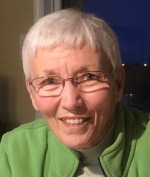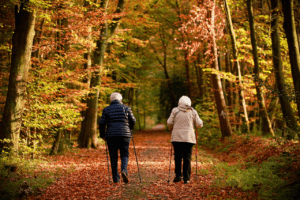The summer of 2023 has already held many significant moments. Fires burning across Canada’s north; floods and tornados upending Eastern and Atlantic Canada; the hottest July on record world-wide. Several specific events also took place in the last days of July and early August:
U.N. chief António Guterres, declaring at a July 29 news briefing that: “The era of global warming has ended; the era of global boiling has arrived,”;
the films Barbie and Oppenheimer debuting together on July 21, each carrying significant cultural critiques, and Barbiheimer becoming a cultural phenomenon,;
Donald Trump’s third indictment on August 1;
Sinéad O’Connor’s death at the age of 56, on July 26.
Of these cultural/global moments, it is Sinéad O’Connor’s death that has unexpectedly gripped me with a sense of sadness, and a sense of restlessness. Responding to that restlessness, I set out to understand more about both of us.
Sinéad O’Connor’s complex life was vibrant, defiant, messy, tender, lyrical, seared with darkness and light, fear and faith. I came to increasingly admire her honesty and courage, to appreciate her creative imagination. She spoke truthful words to the church and to the world. Hers was a prophetic voice I had only partially heard.
I was not a close follower of O’Connor’s career. In general her high profile faded in North America after her Saturday Night Live (SNL) performance in 1992. Ireland, (I discovered), never stopped loving her.
She was pre-eminently an Irish Catholic woman, with a strong sense of faith, and an abiding desire to know God. She loved Ireland and she loved Catholicism. Because she loved both, her criticisms of both cut to the core. She was an activist and a truth teller, “difficult in the best sort of way” (as the Irish say). Fierce in the best sort of way. O’Connor saw and said things before others of us could see them. When her studio albums started coming out in 1987, she shaved her head to defy recording company standards of beauty. She refused to be commodified.1
In 1992, she appeared on Saturday Night Live. After singing Bob Marley’s song “War”, which ends with the words “we are confident in the victory of good over evil”, she tore up a photograph of Pope John Paul II in protest against the abuse of children. Her words, as she tore the photo were “fight the real enemy”.
For O’Connor, the real enemy was the patriarchal, clerical systems of an oppressive catholicity that abused children and women, and prohibited dissent.
After the SNL performance there was considerable indignation and derision directed at O’Connor from both ecclesiastical and civil contexts. Much was made of her “unstable personality” and “mental health difficulties” (about which O’Connor has been very public). Critics cited the great career damage this action would precipitate.
However, according to Una Mullally, writing in the Irish Times, O’Connor rejected the sentiment that this was a misstep.
“I feel that having a No. 1 record derailed my career,” she wrote, “and my tearing the photo put me back on the right track”.2
O’Connor never stopped singing, questioning, or searching. In this summer of 2023, I have come to a new appreciation of the difficult path she followed, the clear honest voice she was.
“And it’s not enough for us to now say that she was a brave warrior. We have to be brave warriors, and we have to have those conversations that she tried to spark from the very beginning of her career.”3
Sinéad O’Connor, pray for us.
1 For more about Sinéad O’Connor, see her memoir Rememberings published in 2022.
2 Una Mullally. Irish Times – Thu Jul 27 2023. Available at: https://tinyurl.com/2zf824hr
3 Allyson McCabe in “A True Prophet”: Why Sinéad O’Connor Risked Her Career to Call Out Catholic Church Abuse. Democracy Now. Available at: https://www.democracynow.org/2023/8/1/remembering_sinead_oconnor
Veronica Dunne is a Sister of our Lady of the Missions (RNDM), who has primarily worked as an educator and counsellor in institutional and community based settings in Canada. She has also served with the RNDMs outside of Canada in Senegal, Peru, and Aotearoa New Zealand.
A 2002 Doctor of Ministry graduate from the University of St. Michael’s College, Toronto School of Theology at the University of Toronto, she subsequently served as director of the Doctor of Ministry program at St. Stephen’s College at the University of Alberta in Edmonton. Her current research interests are in eco-theology and cosmology, and their intersections with indigenous cosmologies and spiritualties.
She presently serves on the RNDM leadership team in Canada.





I too did not know O’Connor’s work or talent, only what I heard by hearsay. She certainly walked the path of a “brave warrior!” Her pain seems palpable and her beauty was born of deep suffering. I am moved by the way she defied social convention to live her truth. Thanks Veronica!
Thank for this salute to a brave and uncompromising woman. I found it hard to read the sudden glowing comments from so many sources over the last week. She was cruelly attacked for so long by many of those same sources. You helped put her life and contribution back into focus for me once again.
Many, many [actually countless] thanks, Veronica, for this reflection on Sinéad O’Connor, and so much else.
xox Virginia
Thanks for this, Veronica! Sinead O’Connor’s death had only skimmed my radar before reading your reflection on her life and legacy. I had not known much about either and am grateful for the inspiration and challenge you communicate through her.